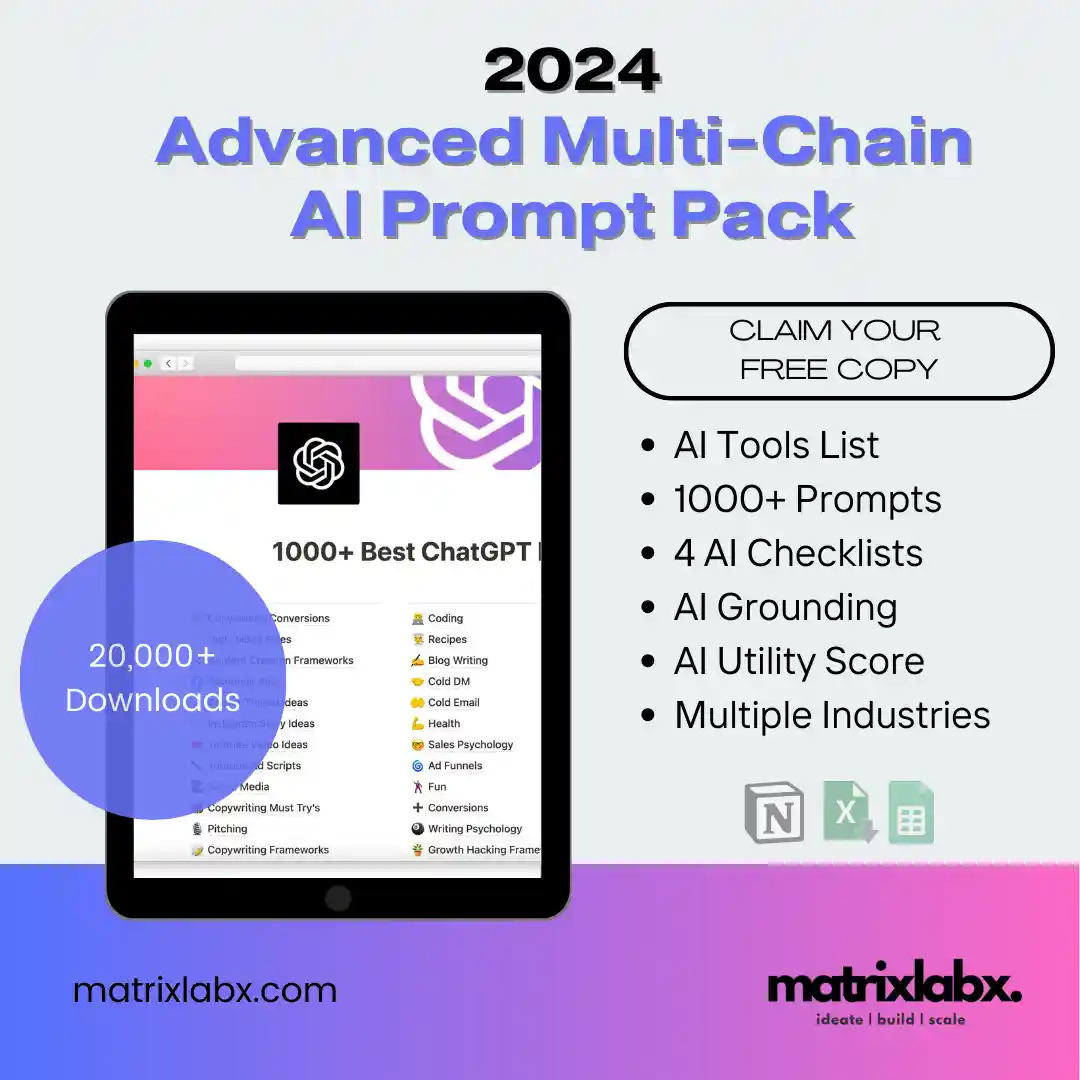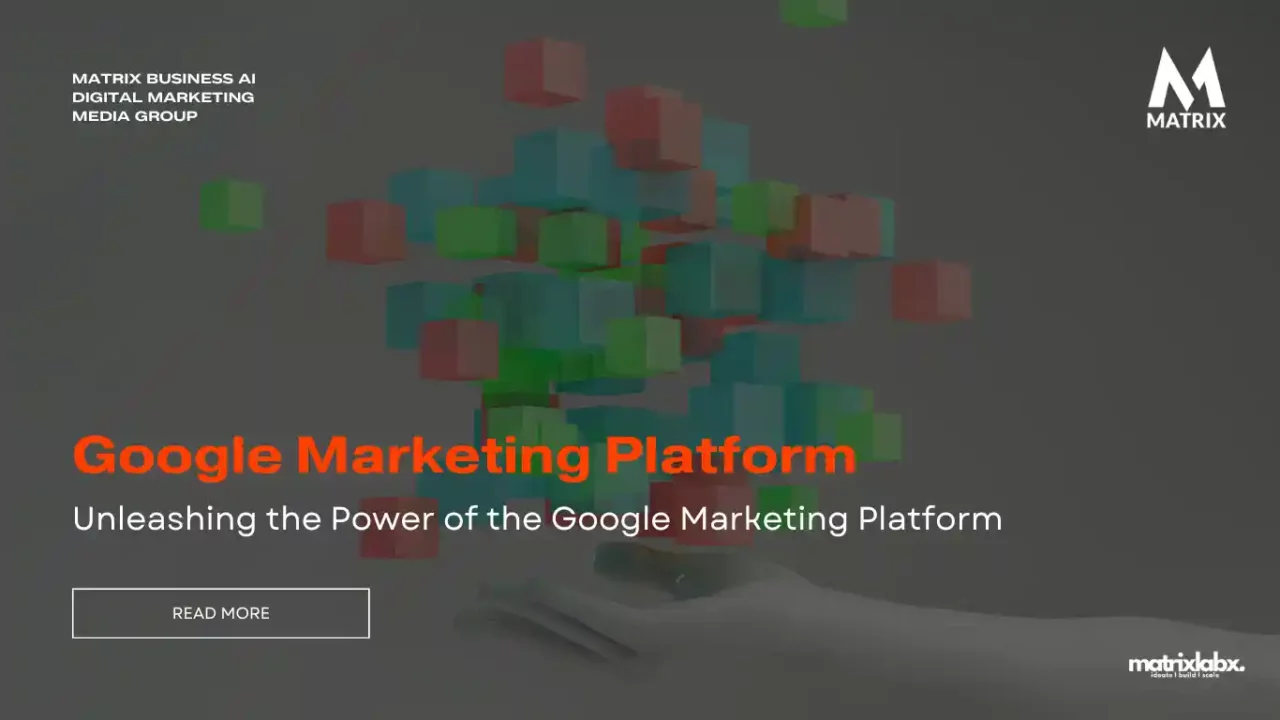Unleashing the Power of the Google Marketing Platform
Unleashing the Power of the Google Marketing Platform
In today’s digital landscape, managing your marketing strategy is more complex than ever. It’s a constant struggle to keep up with the latest trends, customer expectations, and ever-evolving technologies.
Enter the Google Marketing platform, a unified and versatile solution streamlining all your marketing efforts. This blog post will dig deep into its functions and how it can enhance your strategies, focusing on Google marketing and how it can be integrated with CRM for maximum efficiency.
A Glimpse into the Google Marketing Platform

The Google Marketing platform is a comprehensive solution that amalgamates advertising and analytics into a singular, potent tool. This integrated platform aids businesses in planning, managing, and measuring their digital marketing campaigns.
It offers a wide range of products, including Google Analytics, Google Ads, Data Studio, Optimize, Surveys, and Tag Manager, all designed to simplify, streamline, and supercharge your marketing.
Google Marketing Platform (GMP) is a unified platform for advertising and analytics that helps marketers to reach the right audience, deliver tailored messages, and improve their campaign performance.
GMP offers a comprehensive suite of tools, including Display & Video 360, Campaign Manager 360, Search Ads 360, Analytics 360, Optimize 360, and Audience Center 360. These tools are seamlessly integrated, allowing marketers to easily share data and insights across their campaigns.
Competitive Advantages of Using Google Marketing Platform
GMP offers a number of competitive advantages for marketers, including:
- Unified platform for advertising and analytics: GMP provides a single platform for managing all aspects of your marketing campaigns, from planning and execution to measurement and reporting. This eliminates the need to switch between different tools and platforms, saving you time and resources.
- Advanced targeting and personalization: GMP’s powerful capabilities allow you to reach the right audience with the right message at the right time. You can use machine learning to identify and target your ideal customers and then deliver tailored messages that are more likely to resonate with them.
- Intelligent automation and optimization: GMP’s intelligent automation and optimization features help you to save time and resources, and get better results from your campaigns. For example, GMP can automatically adjust your bids and placements to maximize your campaign performance.
- Robust reporting and measurement: GMP’s robust reporting and measurement capabilities give you a complete view of your campaign performance. You can track key metrics such as impressions, clicks, conversions, and ROI, and identify areas for improvement.
Unified Platform for Advertising and Analytics
One of the key competitive advantages of GMP is its unified platform for advertising and analytics. This means that you can manage all aspects of your marketing campaigns from a single platform, including planning, execution, measurement, and reporting. This eliminates the need to switch between different tools and platforms, saving you time and resources.
GMP’s unified platform also makes it easy to share data and insights across your campaigns. For example, you can use data from Analytics 360 to create audiences in Display & Video 360, or use data from Campaign Manager 360 to optimize your Search Ads 360 campaigns.
Advanced Targeting and Personalization
GMP’s advanced targeting and personalization capabilities allow you to reach the right audience with the right message at the right time. You can use machine learning to identify and target your ideal customers, and then deliver tailored messages that are more likely to resonate with them.
For example, you can use GMP to target customers who have visited your website but haven’t made a purchase yet. You can also use GMP to target customers who are similar to your existing customers.
Intelligent Automation and Optimization
GMP’s intelligent automation and optimization features help you to save time and resources, and get better results from your campaigns. For example, GMP can automatically adjust your bids and placements to maximize your campaign performance.
GMP can also help you to identify and fix areas of improvement in your campaigns. For example, GMP can identify keywords that are performing poorly and suggest new keywords to target.
Robust Reporting and Measurement
GMP’s robust reporting and measurement capabilities give you a complete view of your campaign performance. You can track key metrics such as impressions, clicks, conversions, and ROI, and identify areas for improvement.
GMP’s reporting capabilities are also highly customizable, so you can create reports that are tailored to your specific needs.
Google Marketing Platform is a powerful and comprehensive platform for advertising and analytics. It offers a number of competitive advantages for marketers, including a unified platform, advanced targeting and personalization, intelligent automation and optimization, and robust reporting and measurement.
If you’re looking for a platform that can help you to reach the right audience, deliver tailored messages, and improve your campaign performance, then Google Marketing Platform is a great option to consider.
Uncommon Terminology
- Data-sharing integrations: Allow you to share data between different Google Marketing Platform products, as well as with third-party systems.
- Machine learning: A type of artificial intelligence that allows computers to learn without being explicitly programmed.
- Predictive analytics
The Integration of Google Marketing into Your Strategy
The true power of this marketing platform lies in its ability to amalgamate a variety of marketing strategies, including search engine marketing, remarketing, and display advertising, into a single, manageable platform.
It provides a birds-eye view of all your marketing activities, enabling you to create comprehensive marketing strategies, understand your audience better, and execute targeted campaigns precisely.
Google Marketing and CRM Integration: A Winning Combination
To attain marketing success, understanding your customers is crucial, and this is where CRM comes in. CRM, short for Customer Relationship Management, is instrumental in managing all your company’s interactions with potential and existing customers.
By integrating Google Marketing with CRM, marketers can access a wealth of data, enabling them to craft personalized marketing strategies that hit right at the heart of their target audience.
To use Google Marketing and CRM integration, you will need to have the following:
- A Google Marketing Platform account (Google Ads, Google Analytics, or Google Marketing Platform 360)
- A CRM account (Salesforce, HubSpot, or Zoho)
- A Zapier account
Once you have all of the required accounts, you can follow these steps to integrate your Google Marketing and CRM platforms:
- Log in to your Zapier account.
- Click the “Make a Zap!” button.
- Choose Google Marketing as your trigger app.
- Choose the trigger event that you want to use. For example, you could choose the “New Lead” event to create a new lead in your CRM when a new lead is generated in Google Ads.
- Choose your CRM as your action app.
- Choose the action event that you want to use. For example, you could choose the “Create New Lead” action to create a new lead in your CRM when a new lead is generated in Google Ads.
- Configure your Zap. This will involve connecting your Google Marketing and CRM accounts and specifying the fields that you want to sync between the two platforms.
- Test your Zap. This will ensure that your Zap is working properly before you turn it on.
- Turn on your Zap. Once your Zap is turned on, it will start running automatically.
Here is an example of a Zap that integrates Google Ads and Salesforce:
Trigger: New Lead in Google Ads
Action: Create New Lead in Salesforce
This Zap will create a new lead in Salesforce whenever a new lead is generated in Google Ads.
You can use Zapier to create a variety of different Zaps that integrate your Google Marketing and CRM platforms. For example, you could create a Zap that syncs your CRM contacts with your Google Ads audiences, or a Zap that sends email notifications to your sales team when a new lead is generated in your CRM.
By integrating your Google Marketing and CRM platforms, you can automate tasks, streamline your workflow, and improve your marketing results.


